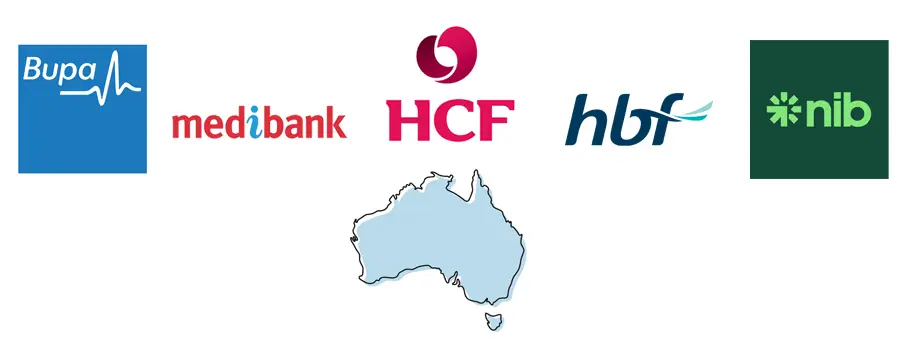
For many Australians, the concept of comparing health insurance switching to a new health policy is perplexing and downright scary. There is a large chunk of the 13.5 million insured people who have been with the same health fund for ten years or more. This begs the question: is staying on the same policy and/or with the same private health insurer a smart investment?
The health insurance market is stimulated by a very important rule that is built into the Private Health Insurance Act 2007. The rule is called Portability, and it applies to all private health insurers in Australia. Portability states that when someone compares and switches to a new health insurance policy they don’t re-serve hospital and extras waiting periods for the things they are already covered for.
As a health insurance adviser for going on ten years, one of the most common scenarios we encounter when speaking to people is that they feel like that they pay too much for their policy and don’t get much back when they claim. There are a multitude of products in the market that qualify as being very poor value, and in most cases those products are the ones that have been around for a long time.
Closed health insurance products
Many people are on closed policies that are no longer available to buy. Health funds technically can’t kick you off a policy until you cancel it resulting in many insured people remaining on out-of-date health insurance products. The issue with a lot of these old products is that they inflate in price every April 1st but the benefits and rebates stay the same.
Many of these closed products were designed for an older market. Prices go up for health services over the years, as dental, physiotherapy, chiropractic, massage and any other claimable health service, and yet some of these closed health insurance policy payouts remain stagnant. As each year passes, the policy cost goes up, the cost for medical treatment goes up, and yet the benefits stay the same.
Health funds release new up to date products regularly
Every two to three years, most private health insurers release new products that have been designed to meet the needs of an ever changing market. These products have new names, new combinations of benefits and, most importantly, usually have higher benefits that match inflation of health costs.
It would make more sense for health funds to simply increase their extras rebates by the same amount the policy cost increases. For example, if the April 1st rate rise for the extras product is 4.3%, then the extras rebates should increase by 4.3% as well. This would keep polices in line and customers happy. It simply doesn’t work this way.
Instead, many funds simply leave members on out-dated policies until the customer indicates they are unhappy or may switch to health fund. A great exercise is to compare health insurance and apply to switch to a better policy and watch your old health fund contact you a beg you to stay after they receive the transfer request.
It’d be great if private health insurers contacted members pro-actively to advise of new policy launches with improved benefits but it rarely occurs. Retention teams at the larger health funds are known for being quite retro-active. It’s even been perceived that some health funds bank on their members staying on old policies because it helps manages costs, however, this is just an opinion.

Portability
Don’t re-serve waiting periods when you switch to a new health fund or policy
“John was immediately covered for a hip replacement in private hospital because he had already served his waiting periods for joint replacements on his old policy”
The devil you know mentality
The ‘Devil you know’ mentality is one of the most detrimental approaches you can have concerning health insurance. This mentality can particularly be found among the senior audience of health insurance. We’ve heard this saying a multitude of times over the years as advisers.
Many people are afraid to switch from the private health fund that they have been with for a long time. It’s understandable that recognition offers comfort and security is important to a lot of people. However, how sure can one be that they are currently with the most reputable and best health fund available to them?
Many stigmas come from the life insurance/personal insurance market- where people are penalized or rejected health care if they have significant pre-existing health conditions- and rightfully so. It’s important not to confuse these two polar industries. Private Health Insurance has a rule called Community Rating, which ensures that all Australians are offered the same health insurance rates regardless of their pre-exisiting health conditions.
Coupled with the rule of Portability (explained at the beginning of this article), you can start to understand that the health insurance market is actually designed for people to compare health insurance often.
The market is stimulated by people who switch health insurance
When you compare your health insurance, you encourage health insurers to remain competitive. All health funds have measurable statistics, one of which is customer retention. Funds don’t like losing members. When you apply to switch to a new health insurance policy, there a number of very healthy benefits
- You encourage health funds who have created better value products with higher benefits.
- You initiate contact with your previous health funds retention team
- You encourage your previous health fund to be more competitive.
- You ensure you are always on an up-to-date health policy with benefits that match your changing needs.
At Fair Health Care Alliance, we give transparent and straight-forward advice and can help you with a health fund comparison line-for-line against your current cover. Our co-operative of health funds are chosen for their fair rebates and great value and our advisers have over 20 years of collective experience in the Australian market.






